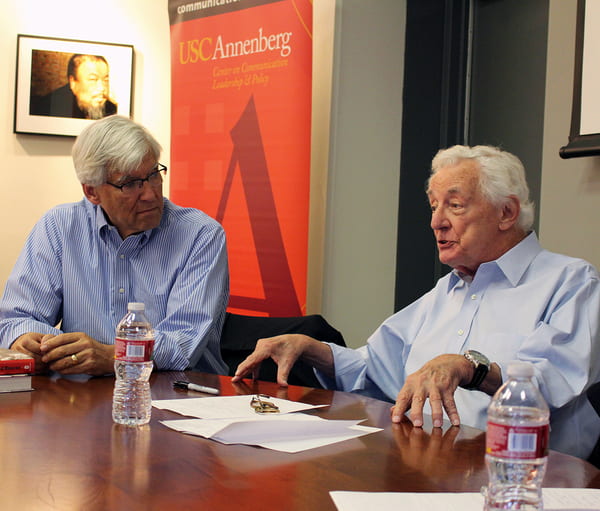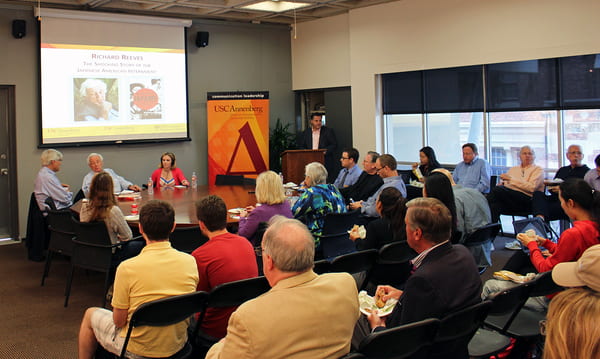USC Annenberg journalism professor, author and historian professor and historian Richard Reeves says there is no doubt in his mind that the United States could again create concentration camps like those used during the internment of Japanese Americans during World War II.
“If a few incidents of terrorism happen again, we could start to round up Muslims in great numbers as we did with the Japanese with no charges except for their religion, just as the Japanese had no charges except for the color of their skin and they looked like the enemy,” said Reeves. “The book is a cautionary tale. The best and the brightest and most revered of Americans were all in on this, and they knew it was unconstitutional and wrong, but it was popular.”
Reeves is a senior fellow at the Center on Communication Leadership & Policy (CCLP). He spoke at a campus event to discuss his new book Infamy: The Shocking Story of the Japanese American Internment in World War II. The book is drawing wide praise, including from the Los Angeles Times, which calls Infamy “a compulsively readable, emotionally rich and passionately written account…as cathartic as ‘Antigone,'” the Sophocles tragedy.

Geoffrey Cowan and Richard Reeves
Listen to the full audio recording of the event here. (Courtesy of Kristin Doidge)
“One of the things that have made the Annenberg School so great the last several years has been having Richard Reeves–who is really one of the nation’s top political reporters and biographers and historians–on our faculty,” said Geoffrey Cowan, USC University Professor and CCLP director.
Reeves said he wrote the book because of its implications for American society. “We are a people of the present and future,” he said. “We don’t look back very much. It’s one of our strengths and one of our weaknesses.”
He explained the circumstances under which the rounding up of Japanese Americans took place, including racial hysteria and fear, as well as the conditions they lived in once interned. Reeves said “jailed” is a more accurate term to describe it, rather than “interned.”
One of the main revelations of Infamy is its portrayal of unlikely villains: President Franklin D. Roosevelt, California Attorney General and later U.S. Supreme Court Chief Justice Earl Warren, journalist Edward R. Murrow, Walter Lippmann, and even Dr. Seuss, all of whom were cheerleaders and ringleaders of what Reeves called “another dark stain on American history” alongside slavery and the treatment of Native Americans.
“It’s a shameful but maybe instructive piece of American history, and something that we all really need to know about,” said Cowan. “The thing that’s so cautionary about the book is that this can happen again with the best people.”
In the April 23 Los Angeles Times review, Karl Greenfield writes, “Reeves’ excellent Infamy, the first popular, general history of the subject in more than 25 years, reminds us that not only can it happen here, it did.”
Photos by Liz Krane
